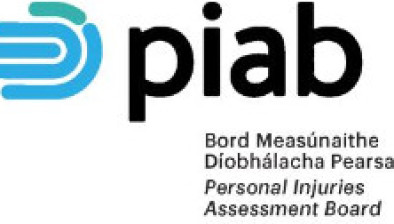Court of Appeal: Aggravated damages award upheld as defendant engaged in ‘litigation misconduct’ by accusing plaintiff of fraud

The Court of Appeal has dismissed an appeal brought by a defendant in a personal injuries action in which the High Court rejected an application to dismiss the proceedings pursuant to section 26 of the Civil Liability and Courts Act 2004.

About this case:
- Citation:[2022] IECA 257
- Judgment:
- Court:Court of Appeal
- Judge:Mr Justice Seamus Noonan
The High Court had determined that the defendant had improperly accused the plaintiff and her lawyers of fraud and awarded aggravated damages in addition to general damages.
Delivering judgment in the case, Mr Justice Seamus Noonan described the “litigation misconduct” of the defendant, stating that his lawyers engaged in “gratuitous and sustained impugning of the integrity” of the plaintiff which had to be “deprecated in the strongest terms”.
In this context, the trial judge was correct to dismiss the section 26 application and to award aggravated damages.
Background
The plaintiff was a lady who claimed to have been injured while taking the LUAS in June 2016. The LUAS had collided with the defendant’s taxi in a “relatively minor incident”. She claimed to have suffered injuries from striking her shoulder on one of the bars in the tram.
During the trial, the plaintiff was questioned about her previous accident history. Specific questions were asked about incidents in 1996 (for which she received £400,000) and other incidents in which she did not make a claim. However, during the course of questioning, the plaintiff did not mention (and was not asked) about an accident on the LUAS in August 2017.
The second incident on the LUAS only came to light when the plaintiff’s doctors served an updated medical report from the plaintiff’s GP during the trial. The matter was adjourned and orders for discovery were made.
It transpired that the plaintiff had attended her solicitor following the 2017 accident and the solicitor wrote a letter of claim in October 2017 to the LUAS operators. The solicitor then provided replies to particulars to the present claim in January 2018 in which the 2017 incident was not referred to as a previous accident.
When the trial resumed, counsel for the defendant cross-examined the plaintiff and argued that she failed to disclose the 2017 accident in the replies to particulars and to the court. The plaintiff stated that she was waiting for counsel to ask questions about the 2017 incident but no such questions were asked at the time. Further, she denied that she hid anything from her solicitor.
The defendant’s lawyers persisted with the allegation of deliberate non-disclosure and expanded the allegation to include the plaintiff’s solicitors. It was said that the legal team were involved in a deliberate effort to perpetrate a fraud on the court.
The medical evidence from the plaintiff’s GP indicated that the plaintiff suffered different injuries between the 2016 and 2017 incidents and there was no overlap in injury. It was said the 2016 injuries were more extensive.
Based on these facts, the defendant applied to strike out the plaintiff’s claim pursuant to section 26 of the Civil Liability and Courts Act 2004, which provided that a plaintiff’s action must be dismissed if they dishonestly adduce false or materially misleading evidence.
The trial judge accepted that the plaintiff failed to disclose the 2017 accident and that the solicitors had known about the 2017 accident. However, it was held that the plaintiff did not mislead the court in her evidence because she was not asked about her subsequent medical history. The court did not accept that the injuries between the 2016 and 2017 incidents overlapped. As such, the defendant failed to establish an intention to mislead the court and the section 26 application was dismissed.
Additionally, the court awarded aggravated damages to the plaintiff because there was no basis for the accusations of fraud or professional misconduct by the plaintiff’s solicitor. Further, allegations of perjury were very serious and such allegations departed from what was necessary to ground a section 26 application. The court awarded €70,000 in general damages and a further €10,000 in aggravated damages.
Court of Appeal
The decision was appealed to the Court of Appeal. Mr Justice Noonan outlined the provisions of section 26 and case law relating to the appropriate circumstances to award aggravated damages. The court noted that it was bound by findings of fact of a trial judge relating to the honesty/dishonesty of a plaintiff (see O’Sullivan v Brozda & Ors. [2022] IECA 163; Ahern v Bus Eireann [2011] IESC 44).
In the absence of a finding of dishonesty from the trial judge, the court was not in a position to interfere with the trial judge’s finding of fact (Goodwin v Bus Éireann [2012] IESC 9). Since dishonesty was a key element to a section 26 application, the trial judge was correct to dismiss the application.
In reaching this decision, the court noted that the defendant made CCTV footage of the accident available to the Court of Appeal which suggested that the court could come to its own conclusions about the accident. This was “entirely inappropriate”, the court held.
Turning to consider the issue of aggravated damages, it was held that such damages did not automatically flow from a failed section 26 application. Had the defendant stopped short of accusing the plaintiff of fraud and perjury, there would have been little justification in aggravated damages. However, an unwarranted allegation of fraud had to be punished (see Lackey v Kavanagh [2013] IEHC 341; Nolan v O’Neill & Mitchell [2016] IECA 298; O’Sullivan).
The court held that the failure by the plaintiff’s solicitor to disclose the 2017 accident was “at best grossly negligent and at worst, deliberate”, but there was “absolutely no evidence” to support the allegation that the non-disclosure was deliberate. Further, it was difficult to understand why the solicitors would have disclosed the GP’s report if they had sought to conceal the 2017 incident.
While the non-disclosure was “extremely and unacceptably careless”, it was clearly a simple oversight, the court held. Accordingly, there was “not a single shred of evidence” that the plaintiff or solicitor deliberately suppressed the second incident. The allegations of perjury and fraud were very serious, potentially leading to the loss of livelihood for the lawyers involved.
The allegations were “entirely improper” and “ought never have been advanced by counsel, on instructions or otherwise”. The “litigation misconduct” was further aggravated by the fact that the defendant repeated the allegations in the appeal. This constituted a “carefully considered and premeditated attack on the honesty and integrity of the plaintiff and her solicitors”.
As such, the court held that the award of aggravated damaged was “entirely justified” in the case.
Conclusion
The court dismissed the appeal and affirmed the award of damages in the High Court.
Keating v. Mulligan [2022] IECA 257











